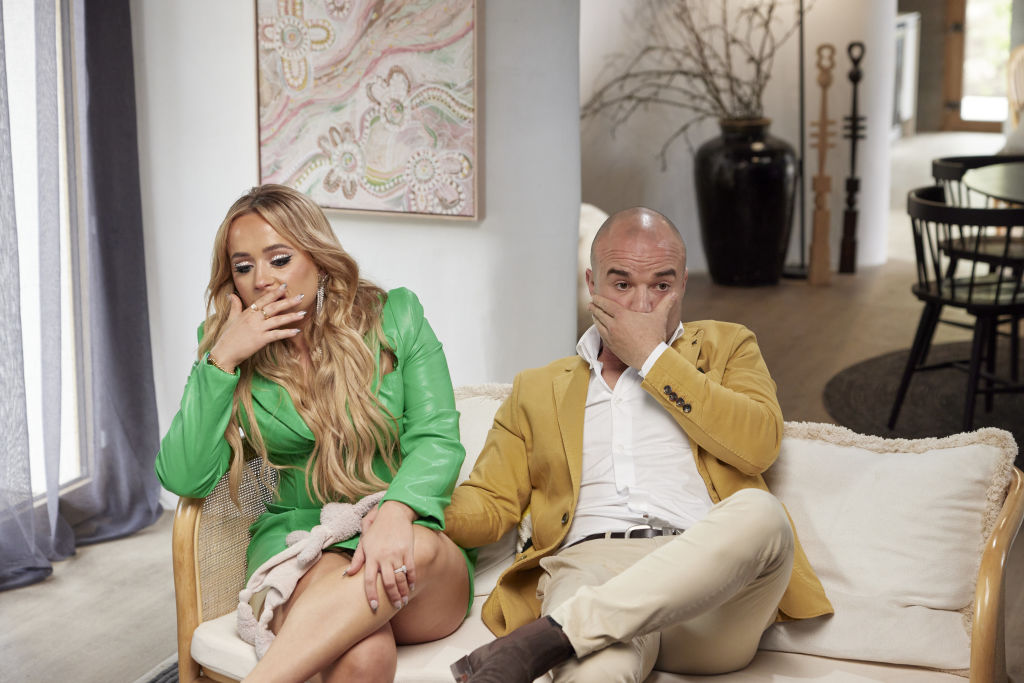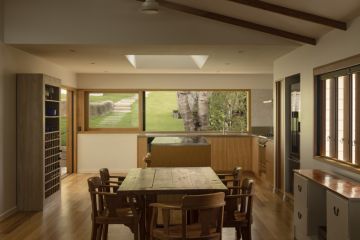Does The Block auction order matter? How it has affected results over the years
It’s a grand finale of epic proportions. A high-stakes, nail-biting series of auctions in which the results are entirely in the hands of the property market. Properties on The Block can soar beyond their reserves, or flop.
Each year, the auction order is a major talking point for contestants and their agents. But does it really matter?
Looking back on the results from the past decade, it certainly appears going under the hammer early has proven advantageous.
Over the most recent 12 seasons, four of the winning properties were auctioned first, four were auctioned second, and two were auctioned in 3rd and 5th place, respectively.
“The order of sale on the day of the auction can be very strategic and very important,” said Damien Cooley, a veteran auctioneer on The Block. “The biggest factor that it all boils down to is the quality of the buyer pool, and that comes back to how many buyers there are looking at purchasing, and essentially, how much the buyers are willing to spend.”
Historically, the auction order was typically decided by the contestants as a group. In most instances, the contestants were advised to auction the house with the most buyer interest first. The reasoning was that the buyers who missed out might trickle on to the remaining auctions, giving all properties the best chance at achieving a good result.
But in 2020, that all changed when it was announced that one team of contestants would win the power to decide the entire auction order. Jimmy and Tam made the decision to go second in the auction, and won the series when their home fetched a whopping $966,000 above reserve.

The following year, Ronnie and Georgia chose to be the first cab off the rank at auction time. They went on to make $296,000, which was the weakest result of the season. The winning property, renovated by Mitch and Mark, was auctioned second.
And in 2022, Tom and Sarah-Jane chose to go second come auction day but only made a measly profit of $20,000. Winners Omar and Oz were first in the auction hot seat, taking home a record-breaking sum of $1,686,666 (including their $100,000 winnings), while the three other homes passed in.

Cooley said the point of difference for Omar and Oz’s property was their buyer pool.
“They had Danny [Wallis] who wanted to buy most, if not all, of the properties,” he said. “And the underbidder was a buyer who was really looking to secure that home.
“So you had a perfect scenario – one person willing to pay anything and a unique buyer who wanted that specific home. If you took that unique buyer out of the equation, that property would have sold for significantly less.”
Cooley said contestants should factor in buyer interest during the campaign when deciding on auction order.
“If the buyer pool is weak, if there are not as many buyers, going first is the best position to be in because you have the greatest amount of purchasers,” he said.

“If there are a lot of people looking at purchasing, then sometimes going last can be advantageous. If there is a significant amount of buyers left over and they’re all looking at purchasing, the one who goes last might get the best result.”
He pointed to the 2014 results of the Fans v Faves season in Albert Park, when Steve and Chantelle were the shock winners. “That year, the apartment that was least favoured by the buyers ended up being the winner and that was because there were buyers left over and they really wanted to buy in that building.”
There are, of course, other important factors that will influence the auction results. “In years gone by, houses and apartments have had different aspects, views – some are higher in buildings, some are lower,” Cooley said. “Some have had courtyards while others haven’t. All these things have an impact on what a buyer is prepared to pay for a property.”

McGrath chief auctioneer Scott Kennedy Green has brought the hammer down on four winning Block properties over the years.
He said he agreed that early auctions had a slight advantage but, “having said that, it comes down to real estate, really and how the campaigns have been run.”
“You want a captive audience competing on your property on auction day,” Kennedy Green said. “That’s not determined by whether you’re first or last. It’s determined by how good your real estate is.”
Unsuccessful buyers who trickle on to other auctions are usually investors or strategic buyers, who tend to be less enthusiastic or emotional.
“There is some strategy to it, but strategy is only as good as the buyers standing in front of you,” Kennedy Green said.

We recommend
We thought you might like
States
Capital Cities
Capital Cities - Rentals
Popular Areas
Allhomes
More








